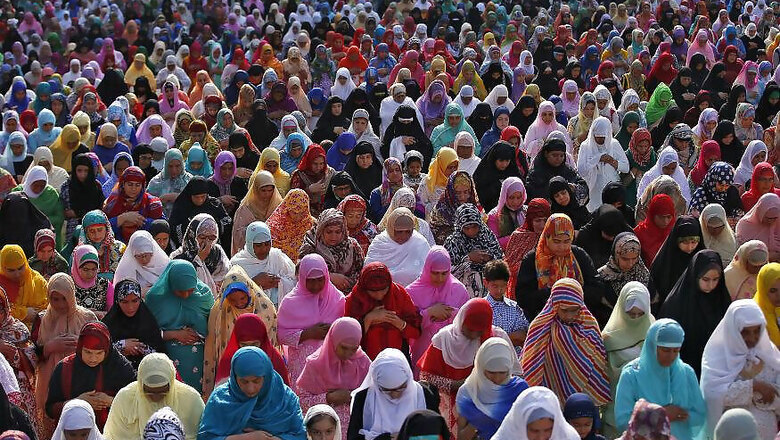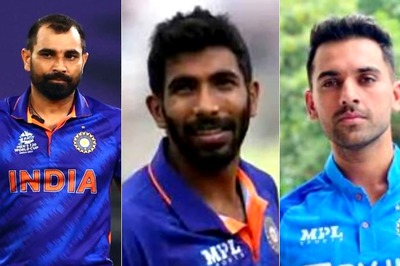
views
New Delhi: At the time of the conclusion of marathon hearing on Triple Talaq in Supreme Court, Chief Justice of India J S Khehar had asked All India Muslim Personal Law Board (AIMPLB) to file an affidavit stating if a woman can exclude Triple Talaq as an option of divorce in her marriage contract, also known as Nikahnama.
Kapil Sibal, counsel for AIMPLB had replied in affirmative, and had stated that the affidavit would be filed at the earliest. On Monday, the Muslim board filed its affidavit stating that it will issue an advisory through its website, publications and on social media platforms, requesting the persons who perform Nikah (marriage) to do the following:
(a) At the time of performing Nikah, the person performing the Nikah will advise the Man that in case of differences leading to Talaq the Man shall not pronounce three divorces in one sitting since it is an undesirable practice in Shariat.
(b) That at the time of performing Nikah, the person performing the Nikah will advise both the groom and the bride to incorporate a condition in the Nikahnama to exclude resorting to pronouncement of three divorces by her husband in one sitting.
Nazia Erum, TEDx speaker and author of forthcoming book, ‘Mothering a Muslim’ told News18 that the “affidavit will not serve any purpose as the cultural practices in India during marriage make it hard for such an advise to be followed.”
“India is a country where in most of the marriages, the Qazi does not even visit the girl. The parents or the relatives of the girl go to her, get the contract signed and the marriage takes place. Or, the contract is read out in a way, the girl can never comprehend what is being said. My own marriage contract was in Urdu and I never understood what was written,” said Erum.
Erum also said that AIMPLB should have instead drafted a model Nikahnama and passed to all the Qazis, making it mandatory to be followed. “Why to ask the Qazi to advise and then put the ball in his court? They hardly get paid Rs 1,000-2,000 for performing a wedding. In India, a girl cannot even ask for her Meher properly. In foreign countries, a groom has to offer at least two years of his annual salary as Meher, but here if it’s around a lakh, then the woman becomes an object of gossip. So do you think she will have a say in the clause of excluding triple talaq,” said Erum.
However, Flavia Agnes, a lawyer and also an intervener in the Triple Talaq case said that “this affidavit is a tricky slope, since it is advisory in nature… but reform in a community must come from within”.
“I am of the view that reform in a community has to come from within. Unless they do it themselves, it is very hard to bring about a change. Even if Supreme Court ushers in a law, or strikes down something, how would one guarantee adherence to it?” asked Agnes, who said the advisory affidavit might not go down well with the Supreme Court’s constitution bench.
“The SC had asked Sibal for something which was mandatory in nature… and by way of which, women can do away with instant Triple Talaq. But this is advisory in nature and may not be accepted by the court at all. Even literacy and awareness has to be generated for the proper implementation of what has been mentioned in the affidavit. But one question remains, why this affidavit now? Why issue an advisory now, which AIMPLB could have done earlier as well?” argued Agnes.
However, senior advocate Indira Jaising, who had passionately argued in the case for one of the petitioner, calling the apex court to strike down this ‘arbitrary’ and ‘extra-judicial practice’, told News18 that it was a clear step to “prevent the court was delivering a verdict on merits”.

















Comments
0 comment